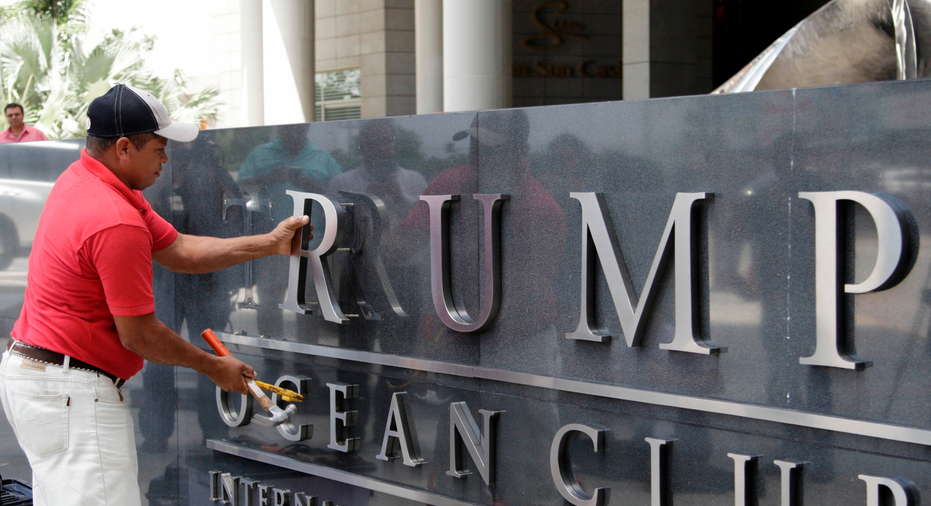Trump's company asked Panama president to help in hotel spat

PANAMA CITY – President Donald Trump's company appealed directly to Panama's president to intervene in its fight over control of a luxury hotel, even invoking a treaty between the two countries, in what ethics experts say was a blatant mingling of Trump's business and government interests.
That appeal in a letter last month from lawyers for the Trump Organization to Panamanian President Juan Carlos Varela was apparently unsuccessful — an arbitrator declined to reinstate the Trump management team to the waterfront hotel in Panama City. But it provides hard proof of exactly the kind of conflict experts feared when Trump refused to divest from a sprawling empire that includes hotels, golf courses, licensing deals and other interests in more than 20 countries.
"This could be the clearest example we've seen of a conflict of interest stemming from the president's role as head of state in connection with other countries and his business interests," said Danielle Brian, executive director of The Project on Government Oversight, a Washington ethics and good government organization.
In the March 22 letter to Varela, a copy of which was obtained by The Associated Press, lawyers for the Trump Organization "URGENTLY" request the Panamanian leader's influence to help reverse the company's acrimonious eviction as managers of the 70-story luxury high-rise once known as the Trump Ocean Club International Hotel & Tower.
While never mentioning Trump or his role as president, the letter says lawyers representing the Trump Organization were aware of "the separation of powers" in Panama but essentially asks the country's president to intervene in the judicial process anyway. It goes on to say that the eviction violates an investment treaty signed by the two countries and suggests that the Panamanian government, not the hotel's new management team, could be blamed for any wrongdoing.
"We appreciate your influence in order to avoid that these damages are attributed not to the other party, but to the Panamanian government," said the letter, which was copied to Panamanian Cabinet officials, as well as the presidents of the Supreme Court and National Assembly.
Late Monday, the Trump Organization made available a translated statement from its Panamanian lawyers, Britton & Iglesias, insisting that the letter to Varela was not an attempt to pressure him "or any other official of the government of Panama." The law firm said its appeal to Panama's government was "very common" and that it had not even informed Trump Organization officials of the move beforehand.
Five days after the law firm urged Varela's intervention, however, a court arbitrator ruled against reinstating the previous management, even though he agreed that Trump's company should not have been evicted while arbitration was ongoing.
A source in Varela's office who was not authorized to comment publicly confirmed receipt of the letter but his office did not respond to calls for comment.
Panama's foreign secretary, Isabel de Saint Malo, who also received a copy of the letter, said Monday: "I don't believe the executive branch has a position to take while the issue is in the judicial process."
The White House referred all questions to the Trump Organization, which did not respond until late Monday night.
Even if Trump was not directly involved in the dispute, his company's citation of the treaty and its appeal to Varela "implicitly traded on President Trump's name and power," said University of Minnesota political governance expert Lawrence Jacobs.
Despite frequent ethics complaints from critics and three current lawsuits accusing him of accepting gifts from foreign and state governments, Trump has clung to constitutional precedence holding that presidents are mostly immune from conflict-of-interest laws.
While most previous presidents have divested some financial assets and placed others in "blind trusts" they could not control during their tenures, Trump kept total control of the Trump Organization but ceded day-to-day management to two of his sons, Donald Jr. and Eric.
Brian said she and other ethicists worry that "this sets a low bar of standards for future presidents."
The bitter standoff in Panama began in October when the owners of the hotel — which was run by Trump under a management agreement — sought to fire his company, citing damage to Trump's brand and mismanagement by hotel officials. But the Trump Organization disputed its termination as illegitimate and refused to hand over the property.
It came to a head in early March, when Panamanian judicial officials sided with majority owner Orestes Fintiklis and a justice of the peace backed by police officers ordered the Trump management team to vacate the property. Workers immediately scrubbed Trump's signage from the hotel and renamed it The Bahia Grand Panama.
The emergency arbitration decision late last month said the case should have remained in arbitration and never gone to Panamanian courts. Both sides continue fighting over who violated the hotel management contract.
___
Braun reported from Washington.



















